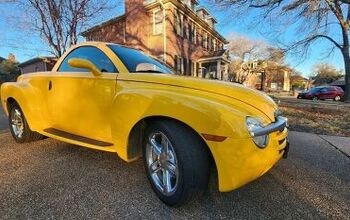Germany's Clunker Culling Cash: A Subsidy For Organized Crime?

For most in the German auto business, the Cash-for-Clunkers scheme (€2.5K if you scrap your old and buy a new one) is the savior that rescues Deutschland from eternal CO2-related damnation. Not to mention the fact that dealers are reporting long lines in showrooms. The hottest topic: the money to fund the Abwrackprämie (“wrecking award”) will be gone soon. Germany’s elected representatives only allocated €1.5b for the program—enough for 600K cars or one fifth or Germany’s yearly run rate. If that money gets exhausted anytime soon, turning water into wine will be relegated to cheap stunt status. The media ignores this eventuality, and beats the public into a frenzy. Act fast! Im Windhundverfahren (“greyhound method” a.k.a. first-come-first-serve principle)!
The Windhund Award goes to the German dealer rag Das Autohaus which brazenly reports that the money may not last into March. The Hamburger Abendblatt reports that more than 300K forms have been downloaded so far. Turning to the back of the paper, next to the obits, it is revealed that only 2000 completed applications were received by the Bundesamt für Wirtschaft und Ausfuhrkontrolle (BAFA) the agency that administering the greendoggle. For the rest, the subsidy is, in fact, a bail-out initiative for organized crime.
Old hands remember when the Altautoverordnung (old car directive) came into effect. Manufacturers were forced to take their old cars back and pay to have them shredded (in an ecologically-friendly way, of course). A car that previously had brought a few hundred Euros cost the manufacturer a few hundred Euros for the wrecking yard’s trouble. More often than not, the money was collected, but the cars were not crushed. They were sold to Central Europe or Africa.
Now imagine what happens when €2.5K is at stake.
The Abwrackprämie is only a week old. There’s already a huge black market for bogus car culling. Monitor, the German version of “60 Minutes,” ran a segment where a TV team succeeded in selling a supposedly shredded car to Poland. Then they sold it to a Lebanese trader who exported it to Africa. As a final accomplishment, they registered the supposedly culled car again . . . in Berlin, right around the corner from where the law was passed. Nobody was checking in a country that usually checks everything.
[Ed: Vehicle safety wasn’t mentioned. But then, why would it be?]
The program cited Jürgen Resch, head of the environmental organization Deutsche Umwelthilfe, who said: “We assume that hundreds of thousands of cars and hundreds of millions of Euros will end up in the hands of organized crime.” As always, the road to hell is paved with good intentions.

Bertel Schmitt comes back to journalism after taking a 35 year break in advertising and marketing. He ran and owned advertising agencies in Duesseldorf, Germany, and New York City. Volkswagen A.G. was Bertel's most important corporate account. Schmitt's advertising and marketing career touched many corners of the industry with a special focus on automotive products and services. Since 2004, he lives in Japan and China with his wife <a href="http://www.tomokoandbertel.com"> Tomoko </a>. Bertel Schmitt is a founding board member of the <a href="http://www.offshoresuperseries.com"> Offshore Super Series </a>, an American offshore powerboat racing organization. He is co-owner of the racing team Typhoon.
More by Bertel Schmitt
Latest Car Reviews
Read moreLatest Product Reviews
Read moreRecent Comments
- ToolGuy I have 2 podcasts to listen to before commenting, stop rushing my homework.
- ToolGuy Please allow me to listen to the podcast before commenting. (This is the way my mind works, please forgive me.)
- ToolGuy My ancient sedan (19 years lol) matches the turbo Mazda 0-60 (on paper) while delivering better highway fuel economy, so let's just say I don't see a compelling reason to 'upgrade' and by the way HOW HAVE ICE POWERTRAIN ENGINEERS BEEN SPENDING THEIR TIME never mind I think I know. 😉
- FreedMike This was the Official Affluent-Mom Character Mobile in just about every TV show and movie in the Aughts.
- Offbeat Oddity The RAV4, and I say this as someone who currently owns a 2014 CR-V. My aunt has a 2018 CR-V that has had a lot of electrical issues, and I don't trust the turbo and CVT to last as long as Toyota's NA engine and 8-speed automatic. Plus, the RAV4 looks sportier and doesn't have the huge front overhang.


































Comments
Join the conversation
So what will the uneducated class do in the future? Not a comment on those people's potential - just a comment on the fact that they chose a career where they bolted stuff together. By the way I recommend taking the "Monitor" segment and running it through Babelfish or some other free translation service. Interesting segment. One customer was recycling a 62,000 km VW Lupo (Fox). That's a 40K mile vehicle that they were crushing. HOW does it help the environment to crush mostly new vehicles? I understand the 400K mile vehicles somewhat but there is manufacturing pollution to consider. New cars aren't grown on tomato plants from mulched soil. They generate waste just being built. I'm keeping my two daily drivers alive as long as possible and economical. 10 and 12 yrs old, nearing 200K miles.